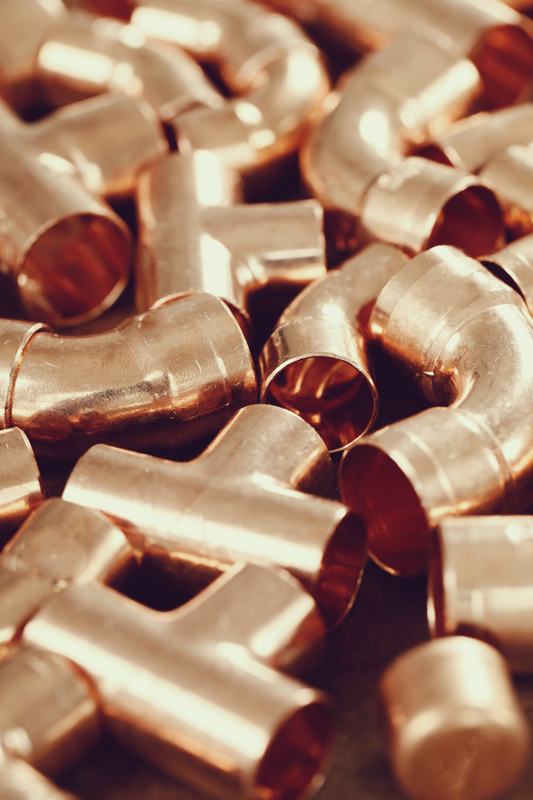Notifications
ALL BUSINESS
COMIDA
DIRECTORIES
ENTERTAINMENT
FINER THINGS
HEALTH
MARKETPLACE
MEMBER's ONLY
MONEY MATTER$
MOTIVATIONAL
NEWS & WEATHER
TECHNOLOGIA
TV NETWORKS
VIDEOS
VOTE USA 2026/2028
INVESTOR RELATIONS
COMING 2026 / 2027
ALL BUSINESS
COMIDA
DIRECTORIES
ENTERTAINMENT
FINER THINGS
HEALTH
MARKETPLACE
MEMBER's ONLY
MONEY MATTER$
MOTIVATIONAL
NEWS & WEATHER
TECHNOLOGIA
TV NETWORKS
VIDEOS
VOTE USA 2026/2028
INVESTOR RELATIONS
COMING 2026 / 2027
 Eric H. Castro -
Jan 6 -
Other -
copper recycling
-
227 views -
0 Comments -
0 Likes -
0 Reviews
Eric H. Castro -
Jan 6 -
Other -
copper recycling
-
227 views -
0 Comments -
0 Likes -
0 Reviews

Copper is one of the most valuable and versatile metals used in a wide range of industries, from electronics and construction to energy and transportation. As one of the few materials that can be recycled indefinitely without losing quality, copper recycling is an essential part of the circular economy. Recycling copper not only conserves natural resources but also helps reduce energy consumption, lower carbon emissions, and drive economic growth.
In this blog, we’ll explore the significance of copper recycling, its environmental benefits, and how it supports sustainable practices. Whether you're a business or an individual, understanding copper recycling will help you contribute to a more sustainable future.
Copper recycling plays a critical role in reducing the environmental impact of mining, manufacturing, and waste. Here are the primary reasons why copper recycling is essential:
Copper is a finite resource, and mining new copper ore is energy-intensive and can cause significant environmental degradation. By recycling copper, we reduce the need for raw copper mining, which helps conserve natural resources and minimize the environmental impact of extracting and processing copper.
Recycling copper requires up to 85% less energy than producing new copper from raw ore. This reduction in energy usage means fewer greenhouse gas emissions, contributing to efforts to combat climate change. The energy savings from recycling copper are a major reason why it’s considered one of the most environmentally friendly metals to recycle.
When copper is recycled, the process uses far less energy than creating new copper, which leads to a reduction in carbon emissions. This is particularly important as industries strive to reduce their carbon footprint and meet sustainability goals. Copper recycling helps lower overall emissions and promotes a greener future.
Recycling copper is a profitable process. The demand for recycled copper has steadily increased, as industries seek cost-effective and sustainable materials. By recycling copper, we also create jobs in the recycling industry, contributing to local economies. From collection to processing, recycling copper generates economic value and supports green industries.
Copper recycling involves several steps, each crucial for ensuring that the metal is recovered, purified, and reused efficiently. Here’s a general overview of the copper recycling process:
The first step in copper recycling is the collection of scrap copper. This scrap can come from a wide range of sources, including old wiring, plumbing pipes, electrical equipment, and even discarded electronics. Copper scrap is typically collected from households, businesses, industrial sites, and demolition projects.
Once collected, copper scrap is sorted by type and quality. Copper is often mixed with other metals or materials, so it's important to separate it from contaminants. Clean copper, such as copper wire, is more valuable and easier to recycle than contaminated scrap, which may need additional processing.
After sorting, the copper scrap is usually shredded into smaller pieces. This helps increase the surface area of the copper, making it easier to melt and purify. Shredding also helps separate the copper from any remaining non-metallic materials.
Once the copper is shredded, it’s melted in a furnace. During this process, impurities are removed, and the copper is purified. In some cases, copper may undergo additional refining to remove trace elements and ensure it meets industry standards.
The purified copper is then cast into new forms such as ingots, rods, or sheets. These newly created copper products can be used in the manufacturing of new items, such as electrical wiring, plumbing pipes, and even renewable energy systems like solar panels.
Recycling copper offers a wide range of environmental, economic, and practical benefits. Here are some of the key advantages:
Recycling copper helps reduce the need for mining, which can lead to habitat destruction, water pollution, and other environmental issues. By using recycled copper, we conserve natural habitats and protect ecosystems that would otherwise be impacted by mining activities.
Recycling copper uses significantly less energy compared to extracting new copper from the earth. This not only saves natural resources but also reduces the environmental impacts associated with energy-intensive mining and smelting processes.
The energy savings associated with copper recycling result in a reduction in greenhouse gas emissions. This is particularly important as industries worldwide strive to meet climate goals and reduce their carbon footprints. By recycling copper, industries and individuals can play an active role in minimizing climate change impacts.
Recycling copper is cost-effective for both manufacturers and consumers. Since recycled copper is cheaper to produce than new copper, businesses can save on material costs. For individuals, selling copper scrap can provide an additional source of income. Recycling centers often pay a fair price for copper scrap, making it financially rewarding.
Copper is a 100% recyclable material that can be reused indefinitely without losing quality. This makes copper an essential part of the circular economy, where materials are reused, repaired, and recycled rather than discarded. By recycling copper, we contribute to a more sustainable and resource-efficient economy.
If you’re looking to recycle copper in Cleveland, Ohio, or nearby areas, there are several local recycling centers that accept copper scrap. To make sure you get the best price for your copper, consider the following tips:
Find Local Scrap Yards: Research local scrap yards that specialize in metal recycling. Many scrap yards in Cleveland and surrounding areas offer copper recycling services and provide competitive rates for scrap copper.
Check for Clean Copper: Clean copper, such as copper wire or piping, will typically yield higher prices than mixed or contaminated copper. If you have a large amount of copper scrap, consider cleaning it beforehand to maximize its value.
Know the Market Price: Copper prices fluctuate based on market demand, so it’s helpful to check current copper prices before selling your scrap. This can give you an idea of what to expect when you visit a recycling center.
Copper scrap can come from many sources, both residential and industrial. Here are some common examples:
Wiring and Cables: Old electrical wiring, whether from homes or electronics, is a major source of copper scrap. Copper wiring is commonly found in electrical systems, appliances, and computers.
Plumbing Pipes: Copper pipes used in plumbing systems are often replaced during home renovations or plumbing upgrades, providing an excellent source of scrap copper.
Electrical Equipment: Old electrical devices, including motors, transformers, and appliances, often contain copper components that can be recycled.
Construction Debris: During the demolition or renovation of buildings, copper fixtures such as roofing, gutters, and wiring may be recovered and sent to recycling centers.
Copper recycling is an essential part of creating a sustainable future. By recycling copper, we conserve valuable natural resources, save energy, reduce greenhouse gas emissions, and contribute to a greener planet. Whether you’re recycling old electrical wiring, copper pipes, or industrial scrap, your efforts can have a significant environmental and economic impact.
By supporting copper recycling initiatives in your area, you help promote sustainability and contribute to the circular economy. So, the next time you come across scrap copper, remember that recycling it not only benefits you financially but also helps the planet. Let’s continue to recycle copper and work toward a cleaner, more sustainable world!
